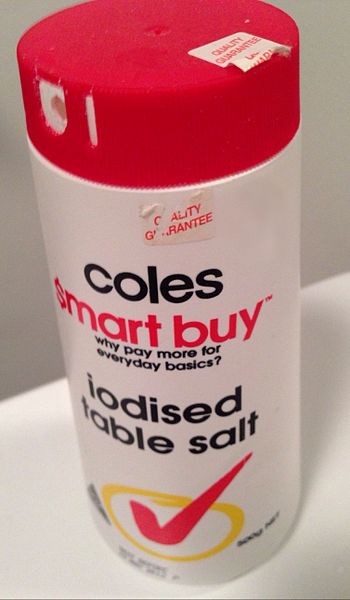Many of the most persistent questions here, and in many other places that thyroid is discussed, concern iodine. Should I take an iodine supplement? Is it OK to take Lugol's solution? Someone said avoid all iodine, is that right? Is amiodarone the cause of my thyroid problem? Are only Hashimoto's sufferers supposed to avoid iodine? And many, many more.
Not for one minute do I blame the people asking the questions. If you don't know, ask! But when it comes to iodine it isn't just the new patients who don't know, it seems to be almost everyone! (I definitely include myself here.) So when a paper comes out expressly looking at the what happens when iodine intake increases, as happens with any form of supplementation, it seems worth a look.
As always, you can make your own judgements, and then post your opinions and comments.
Endocrinol Metab. 2014 Sep;29(3):240-247. English.
Published online Sep 25, 2014. dx.doi.org/10.3803/EnM.2014...
Copyright © 2014 Korean Endocrine Society
Effects of Increased Iodine Intake on Thyroid Disorders
Xin Sun, Zhongyan Shan and Weiping Teng
Department of Endocrinology and Metabolism, Institute of Endocrinology, Liaoning Provincial Key Laboratory of Endocrine Diseases, The First Affiliated Hospital of China Medical University, Shenyang, China.
Corresponding author: Weiping Teng. Department of Endocrinology and Metabolism, Institute of Endocrinology, Liaoning Provincial Key Laboratory of Endocrine Diseases, The First Affiliated Hospital of China Medical University, No.155 Nanjing North St, Shenyang 110001, China. Tel: +86-24-8328-3294, Fax: +86-24-8328-3294, Email: twp@vip.163.com
This is an Open Access article distributed under the terms of the Creative Commons Attribution Non-Commercial License (creativecommons.org/license... which permits unrestricted non-commercial use, distribution, and reproduction in any medium, provided the original work is properly cited.
Abstract
Iodine is a micronutrient essential for the production of thyroid hormones. Iodine deficiency is the most common cause of preventable mental impairment worldwide. Universal salt iodization (USI) has been introduced in many countries as a cost-effective and sustainable way to eliminate iodine deficiency disorders for more than 25 years. Currently, the relationship between USI and iodine excess has attracted more attention. Iodine excess can lead to hypothyroidism and autoimmune thyroiditis, especially for susceptible populations with recurring thyroid disease, the elderly, fetuses, and neonates. Nationwide USI was introduced in China in 1996. This review focused on the effects of iodine excess worldwide and particularly in China.
Keywords: Iodine excess, Universal salt iodization, Thyroid diseases.
e-enm.org/DOIx.php?id=10.38...
The full paper is available on-line, including tables. Please go off and read it.
Rod

